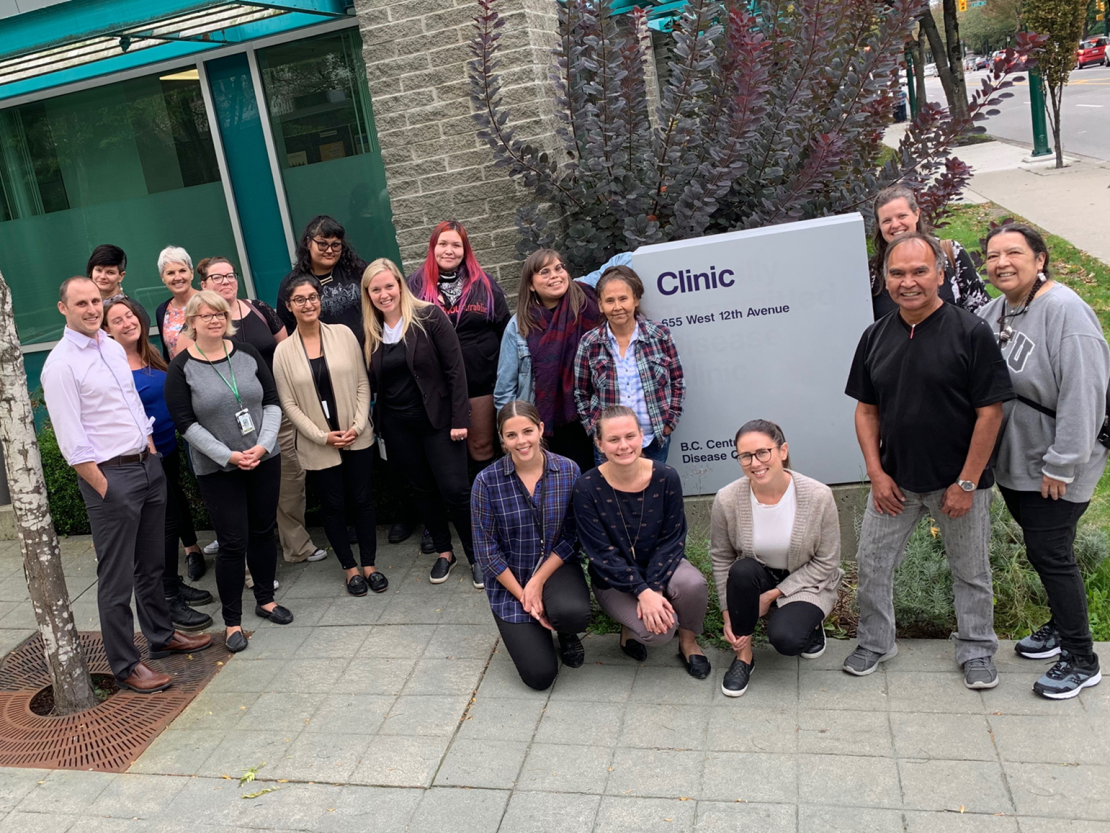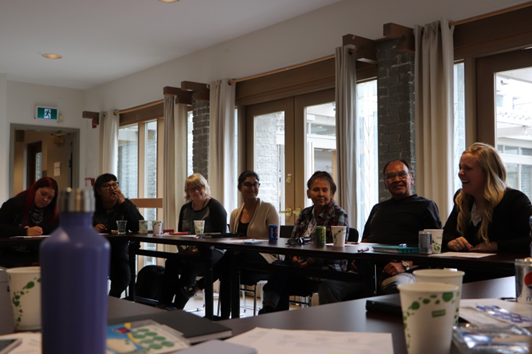
Share this page
“As an Indigenous person, I was eager to create a culturally safe space for Indigenous people’s stories to be heard in a way that encourages growth and healing”
Brenna Robert, a psychiatric nursing student, first looked into the 2019 summer student internship program as a way to sharpen her medical and psychiatric skills. When an opportunity arose to help improve culturally safe care for Indigenous people in tuberculosis (TB) and sexually transmitted infection (STI) clinics, she jumped at the chance.
“As an Indigenous person, I was eager to create a culturally safe space for Indigenous people’s stories to be heard in a way that encourages growth and healing,” said Brenna.
During the summer of 2019, Brenna interned at the BC Centre for Disease control on the Making Space for Health Equity and Cultural Safety project to help develop a health equity walk-through of four of their clinics. The goal was to collect feedback about what made the clinics culturally safe or unsafe.
Jillian Arkles Schwandt, the lead on the project, sought out a student intern because she strongly believed that a diversity of perspectives, ideas and skills was essential to making the project a success. “Students add so much to the process and bring an outsider’s perspective to projects.”
Brenna learned many skills during her internship, such as new ways of communicating including interviews and focus groups. Some of her newfound knowledge had a profound effect on her. She will never forget what she heard someone say: “A clinic space cannot be Indigenous-friendly if it is not also family-friendly.”
“These are skills that I’ll take with me for the rest of my life. I view them as an important stepping stone for my professional career as a young, ambitious, Indigenous nurse,” Brenna said.

Jillian saw the project as a great opportunity for a future health care leader like Brenna to improve their skills, especially around health equity and cultural safety.
One of the most rewarding experiences Brenna had during her internship was getting to facilitate the walk-through interviews in the clinics. “I learned something new about both myself and the clinic during every walk-through.”
The internship experience wasn’t rewarding for just Brenna – the whole project team benefitted from her presence. “She took an active role in building relationships with our team, including community members and clinical staff,” said Jillian. The connections that Brenna built helped the project to be ultimately successful, through insights that only a fresh perspective could have provided.
“I felt a lot of pride in being a part of the dialogue because I knew it would lead to concrete changes in the clinics and better quality of life for future Indigenous clients,” said Brenna.
The demands of the project were often intensive. With frequent all-day meetings on top of collecting and analyzing data, it was the moments spent talking over a meal that really brought richness to the project’s outcome. “At a recent presentation, our Elder Syexwaliya (Ann Whonnock) remarked that our project team had become like a family,” says Jillian.
“I felt a lot of pride in being a part of the dialogue because I knew it would lead to concrete changes in the clinics and better quality of life for future Indigenous clients.”
So, what advice would Brenna give to someone thinking of applying to the summer internship program? Remember to be assertive! “There were times when I felt overwhelmed by the content and importance of the project, but being able to voice my concerns or personal learning needs to my supervisors was instrumental in easing stress, integrating myself into the team and acquiring new learning opportunities.”
And for project leads considering applying for a summer intern? Jillian says to have a clear plan and clear objectives for the intern. “I believe we were successful with our intern because we had a clearly defined role and work plan for the work that we wanted Brenna to complete. We also treated Brenna like an equal rather than a student, and saw her perspectives as integral to our project learnings.”

